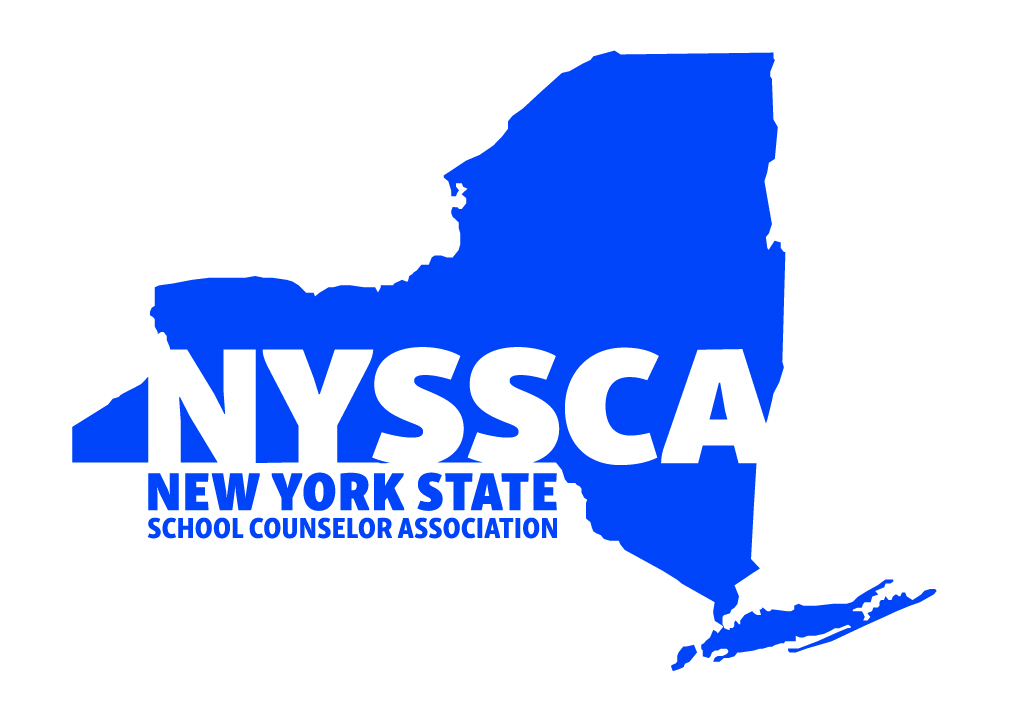Position Statments
NYSSCA is providing guidelines for position statements: Click here.
As a chapter of the American School Counselor Association, NYSSCA supports the position statements that have been adopted by ASCA. You can find these position statements HERE
School Counselors Support Equity & Access for All New York State Students-February 2021
NYSSCA CONDEMNS VIOLENCE AND INSTITUTIONAL RACISM-June 2020
The New York State School Counselor and Academic Intervention Services (AIS)
NYSSCA encourages and supports all students’ academic, personal/social, and career development through comprehensive school counseling programs. School counselors are committed to helping all students realize their potential and make adequate yearly progress by addressing barriers to learning.
New York State School Counselor Association Position Part I & PartII
The New York State School Counselor and Character Education
NYSSCA endorses and supports the Safe Schools Against Violence in Education Act (Project SAVE) provision for the civility, citizenship, and character education component in the course of instruction in grades K-12. The New York State School Counselor needs to take an active role in selecting, facilitating, and promoting a Best Practice Curriculum of Character Education (website to be added).
New York State School Counselor Association Position
The New York State School Counselor and School Safety Plans
NYSSCA endorses and supports the Safe Schools Against Violence in Education Act (Project SAVE) provision for School Safety Plans. This includes Risk Reduction Prevention/ Intervention Strategies and Critical Incident Response Procedures. School Safety Teams should include a school counselor. School counselors are leaders in Risk Reduction Prevention/Intervention programs. They are an integral member of the team that responds to acts of violence and other school emergencies. Their role will include de-escalation and monitoring students’ safety and well-being.
New York State School Counselor Association Position
School Counselors and the Use of Agency and Fee-for-Service Personnel in Schools
School systems across New York State have found the need to contract with outside agencies to satisfy job requirements of school counselors. The use of agency and fee-for-service personnel to address the personal, academic, and career counseling needs of students is a growing trend across the state; one that does not serve the best interests of students in our schools. Agency and fee-for-service personnel must not assume professional school counselors’ duties. Districts should make every effort to meet students’ counseling needs through their credentialed staff members.
New York School Counselor Association Position
The NYS School Counselor and Supervision/Evaluation
New York State school counselors require appropriate supervision. Each New York State school counselor shall have an annual evaluation that articulates the work of the school counselor with a comprehensive school counseling model. The school counselor’s supervision and evaluation should accurately reflect the professional responsibilities that are essential in order to deliver a comprehensive school counseling program. Adherence to the ASCA Ethical Standards for School Counselors and the ACA Code of Ethics and Standards of Practice should be key components of the supervision and evaluation process.
The Rationale
The primary purpose of the supervision and evaluation process is to ensure school counselors’ effectiveness, high-level performance, and continued professional growth. Supervisors of school counselors lead the implementation of a comprehensive School Counseling Program. Supervisors provide individual and group supervision to school counselors in their day-to day practice. Supervisors need to identify and organize professional development for school counselors to ensure continuous improvement in the school counseling program. Supervisors also coordinate the integration of school counseling programs within the total educational process in their buildings and district.
The annual evaluation is a collaborative effort between the school counselor’s supervisor and the school counselor. Annual goals and professional growth are collaboratively developed, reviewed, and assessed based on the implementation of a comprehensive School Counseling Program.
The School Counselor’s Role
The school counselor is an advocate for appropriate supervision and evaluation. The school counselor articulates pertinent information to district and school administrators relative to the need for supervision and evaluation based on the implementation of a comprehensive School Counseling Program. The school counselor must collaborate with administrators to develop the appropriate assessment tools to use in professional and programmatic evaluation.
Summary
The school counselor is a proactive contributor to the supervision and evaluation process. The Counseling Supervisor needs to understand the role and responsibilities of the school counselor as described in the district’s Comprehensive School Counseling Program and develop a supervision and evaluation process accordingly. Criteria used in the evaluation process should include the ethical standards and program standards that are essential to effective practice and program implementation.
The NYS School Counselor Association Netiquette Policy
